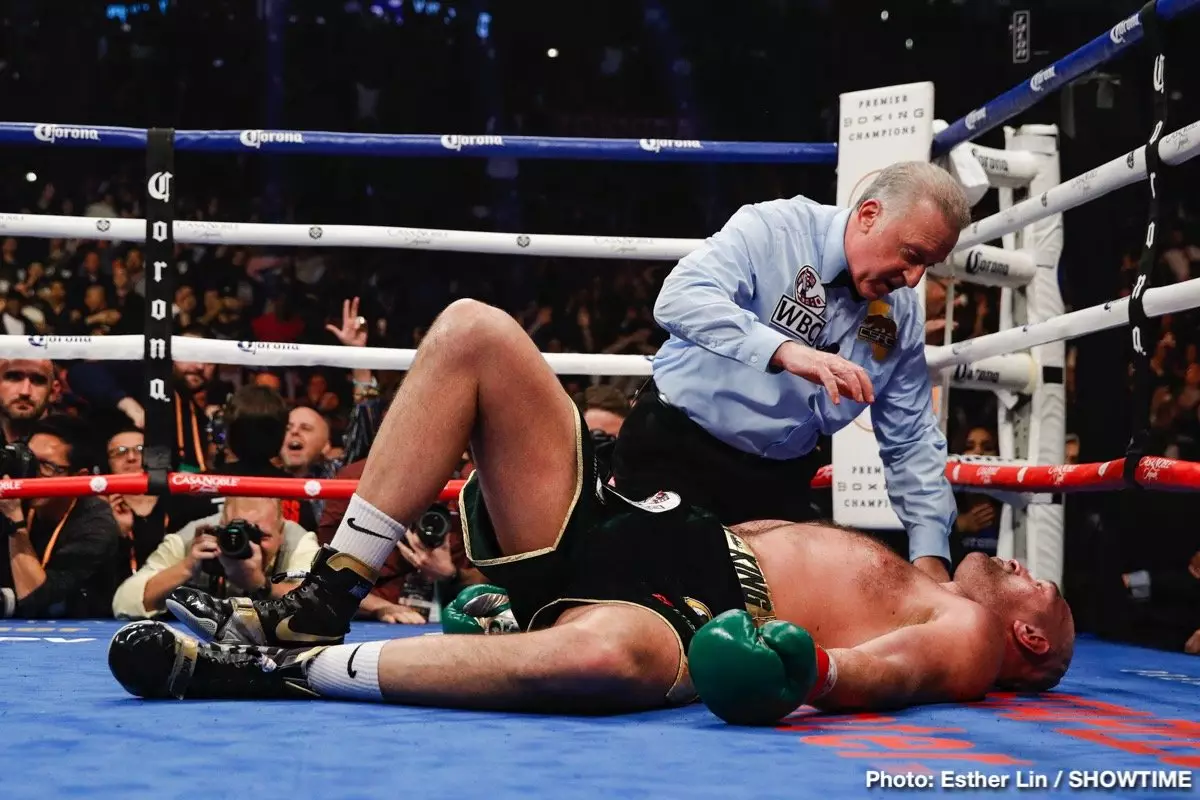Boxing, a sport steeped in rich history and intense rivalries, often finds itself at the mercy of subjective opinions. Recently, Tyson Fury, the British heavyweight champion, shared his thoughts on the integrity of judging in boxing, particularly ahead of his highly anticipated rematch with Oleksandr Usyk. With a career record of 34-1-1, Fury’s confidence in his prowess might mask underlying criticisms of how boxing matches are often adjudicated. However, a closer examination of the fight landscape reveals a pattern of controversy alongside the fighters’ triumphs.
In the lead-up to the rematch, Fury painted a picture of subjectivity when discussing the role of judges in scoring fights. He dismissed the concept of “robbery” in boxing, stating that differing opinions naturally arise when three judges observe the same contest. However, this assertion invites scrutiny, particularly in light of his past experiences wherein decisions could be perceived as unjust. Notably, Fury’s last fight against Usyk, which ended in a divided judgment with one judge favoring Fury controversially, highlights how subjective scoring can lead to widespread disagreement among fans and experts alike.
The perception that judging is simply a matter of opinion neglects the compounded implications of scoring and the responsibility that comes with it. With matches often hanging in the balance and careers at stake, the ramifications brew tensions in a sport where outcome can dramatically alter trajectories.
While Fury focused primarily on judging, he failed to address the pivotal impact that referees have on match outcomes. The dynamic between judges and referees reveals a nuanced layer in the fight’s narrative. For instance, the controversial moments in Fury’s fight history, including the mishandled counts in bouts against Deontay Wilder and ‘Big John’ McDermott, reinforce the idea that officiating is far from uniform. These incidents spotlight how crucial referee decisions can be, potentially saving a fighter from defeat or leading to unjust outcomes.
In boxing, referees hold the formidable power to change the course of a fight with their interventions. The accidental allowances or delays during counts can also introduce a wild card into an athlete’s career. Fury’s experiences bring to light how a referee’s discretion can overshadow the judges’ opinions; with every referee having unique approaches to calling a fight, the inconsistencies could be described as chess pieces in a much larger game.
With boxing’s reliance on subjective judgments, the margin for error grows remarkably thin. Fury’s perspective, while peppered with his seasoned insight, simplifies the complex nature of boxing officiating. The notion that differing opinions merely reflect personal impressions overlooks the intricate, high-stakes nature of each bout and the potential for devastating career implications. Each match can become an emotional battleground with reputations at stake, not just for the fighters but also for the judges and referees involved.
Football, basketball, and other sports employ technology to ensure accurate calls, yet boxing remains stubbornly traditional. Fury’s perspective may reflect a fighter’s reliance on self-belief, but it is also symbolic of a broader need for overhaul in how boxing governance addresses refereeing inconsistencies and judges’ subjectivity. While elements such as instant replay or additional judges have been floated, the crux of the issue remains how the boxing community can instill confidence that outcomes are earned rather than decided by subjective interpretations.
Tyson Fury’s dismissal of ‘robberies’ as mere opinions coincides with a critical atmosphere that consistently calls for change in boxing officiating. As boxing continues to evolve, it is imperative that both past mistakes and current practices are scrutinized. Understanding that judging transcends personal biases is essential to preserving the integrity of a sport that thrives on explosive competition and high stakes.
While Fury’s statement may reflect his beliefs, it opens the door to broader discussions on the mechanics of boxing officiating. As boxing enthusiasts eagerly anticipate the rematch with Usyk, it is equally essential for stakeholders to reflect on how boxing can elevate its standards and ensure that each bout remains a true contest of skill rather than a theatre of subjective interpretation.

